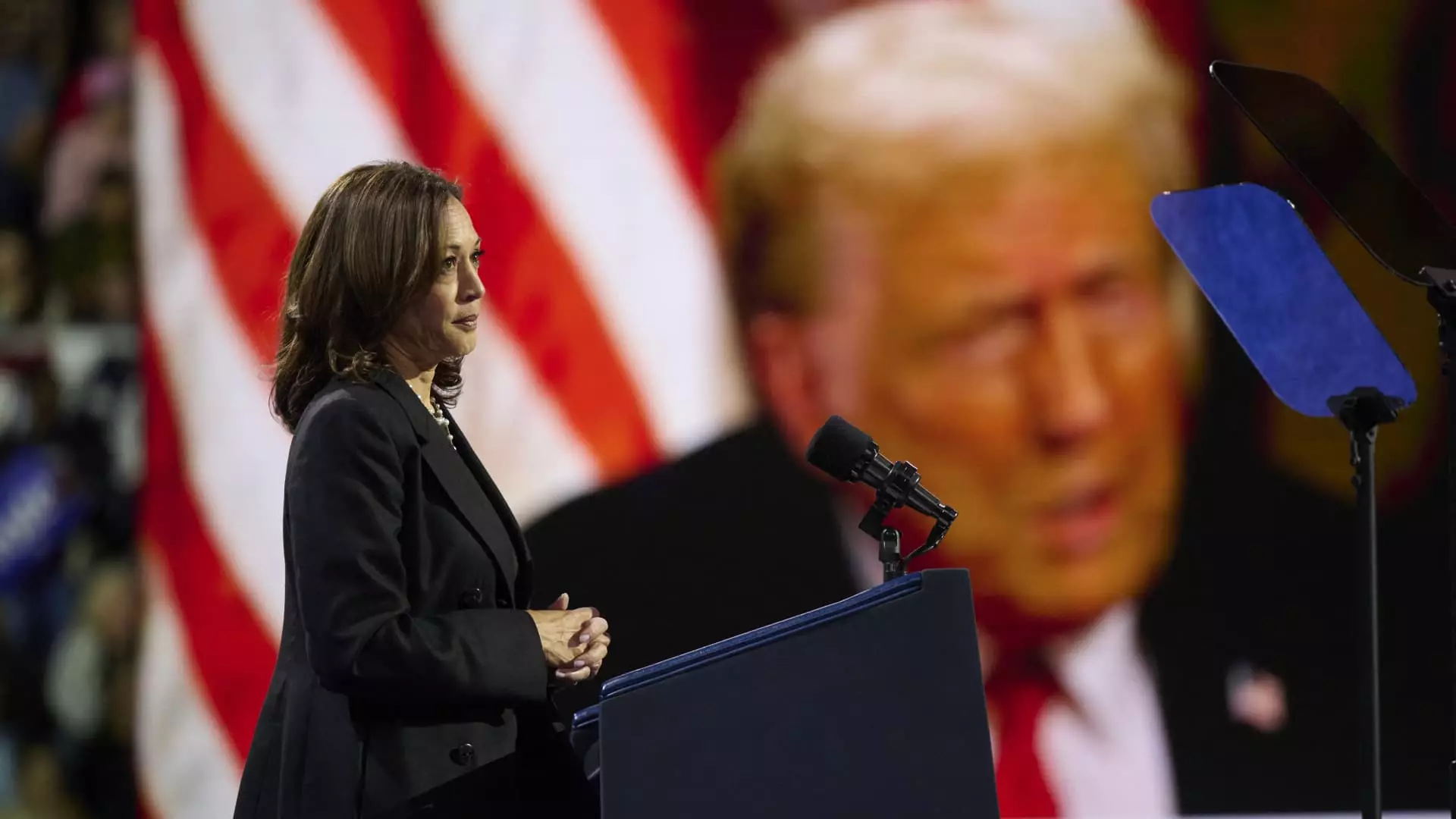The rise of political betting platforms such as Polymarket reflects a fascinating intersection of finance, politics, and technology. In recent weeks, significant scrutiny has emerged surrounding the betting activities connected to former President Donald Trump’s candidacy for the 2024 election. Reports have detailed that four accounts on Polymarket have engaged in high-stakes betting totaling over $28 million on Trump’s likelihood of winning, sparking debate over the integrity and implications of such gambling activities.
According to Polymarket and subsequent analyses, all four accounts betting heavily on Trump are controlled by a single trader, identified as a French national with extensive experience in trading and finance. This information raises questions about whether such concentrated betting represents a genuine forecast of electoral outcomes or if it could potentially manipulate market perceptions of Trump’s chances. The source of the funds for these accounts is traced back to Kraken, a well-known cryptocurrency exchange. While Polymarket maintains that there is no evidence to suggest market manipulation, the sheer volume of bets is a catalyst for skepticism and warrants further investigation.
Polymarket, like other prediction markets, operates under different principles compared to traditional polling. The platform allows users to bet on the outcomes of various events, with actual financial stakes weighing heavily on the perceived probability of an event occurring. This dynamic has prompted some, including public figures like Elon Musk, to assert that prediction markets might offer a more accurate snapshot of electoral sentiment than conventional polls. However, it is essential to recognize that this perspective might overlook critical aspects of both predictive markets and polling methodologies.
Traditional polls rely on sampling methods to gauge public opinion, whereas prediction markets respond to behavioral economics, driven by real monetary stakes. While both systems have their flaws, conflating the two could lead to misunderstandings, particularly regarding the accuracy of the information they convey. According to Polymarket, the company stresses that its platform’s odds reflect the probability of events occurring rather than merely the intentions of voters. This differentiation is vital for accurately interpreting the data that political betting markets are generating.
The escalating interest in political betting markets could have far-reaching ramifications, particularly as they pertain to the public’s perception and consumption of political news. If participants, motivated by monetary interests, begin to influence how political events unfold—whether through their betting habits or the narratives they propagate—the integrity of the electoral process could indeed be jeopardized. The battleground of the 2024 election is already marked by polarization and tension, and the introduction of high stakes among devoted factions complicates this landscape further.
As noted in reports, the Polymarket accounts are not merely placing bets on election outcomes but have also wagered substantial amounts on Trump winning the popular vote against Vice President Kamala Harris. The prominence of these bets could distort narratives surrounding voter confidence and course electoral strategies from all sides. If certain betting patterns are leveraged to sway public opinion, it may inject an element of destabilization into an already unpredictable political atmosphere.
The regulatory environment surrounding political betting is also evolving. Recently, Polymarket has faced restrictions mandating it to deny U.S. traders access after a settlement with the Commodity Futures Trading Commission (CFTC). In contrast, other platforms like Kalshi are expanding their offerings, which raises questions about the frameworks governing these markets. As political wagering gains traction, oversight and regulation are crucial to ensure fairness and transparency, not only to protect consumer interests but also to safeguard the political process itself.
The intersection of politics, economics, and innovative technology through platforms like Polymarket presents a modern twist to electoral engagement. However, the implications of high-stakes betting within this context necessitate careful consideration and strong regulatory measures to avoid potential pitfalls. The unfolding dynamics amid the 2024 election cycle underscore the importance of scrutinizing every aspect of political predictions, whether they arise from traditional polling or the burgeoning realm of betting markets.


Leave a Reply